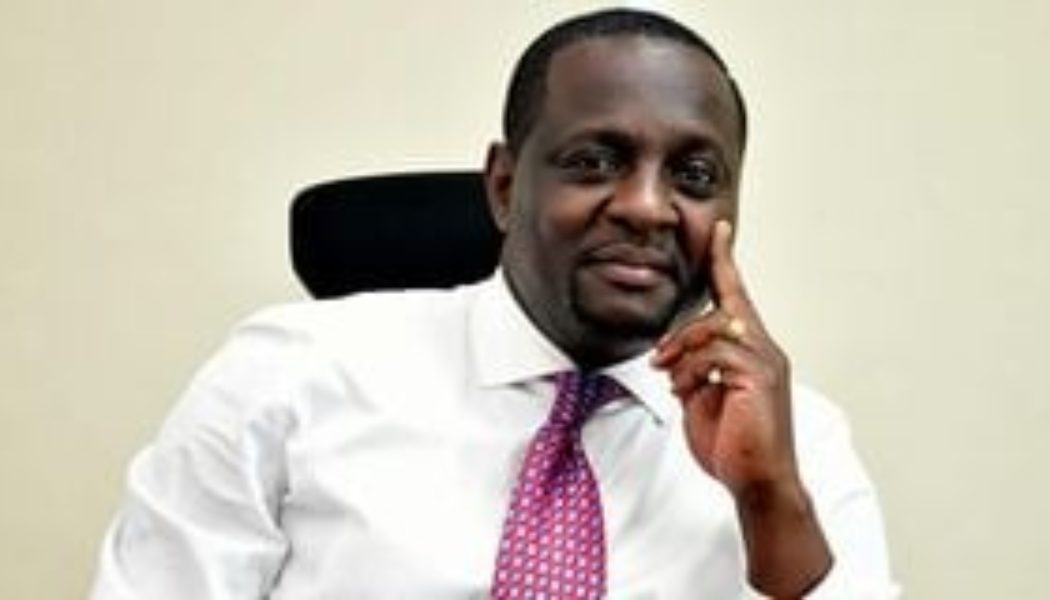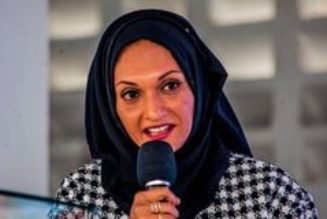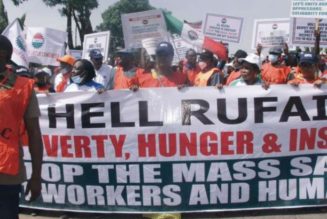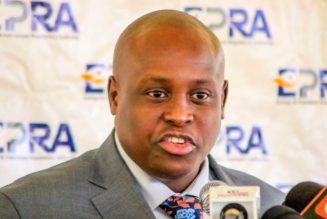The pauper-to-prince fable has already been told enough. Especially not if you are named after history makers, like Churchill Winstones. In a sense, his fate was already written in the stars, sealed with the cosmos.
But this story won’t make sense without rehashing it, so here goes: Churchill was a shoe shiner. Then a cleaner. He went back to school after 13 years. Now, he sits at the helm of Safaricom Investment Cooperative.
It’s a long way from the boy in Kaloleni, a low-income neighbourhood in Nairobi, rising through his bootstraps.
At his expansive office on Nairobi’s Waiyaki Way, he takes me on a walk through his childhood, his father’s rhumba music, and how he has come to be just like him. But if you listen closely, he seems to say, everything that comes with you, doesn’t need to go with you.
What do you miss most about your childhood?
I’ll quote Oprah [Oprah the American talk show host] who said she would do things much faster if the hands of time went back. When you grow up, there’s no luxury of time. If you got back time, you’d want to do the things you missed out on now and execute them with speed, whether it is going back to school, because that took me a while—13 years.
What kind of child were you?
Very ambitious. And a leader.
What was your nickname growing up?
Soldier. My grandparent was a chief, and people would march for chiefs. I used to imitate that a lot, haha! Just like a soldier, I like things that are done well, and with structure.
What has not changed about ‘Soldier’ since childhood?
My integrity. And being prayerful. Soldiers pray before they go for any activity, and one could survive or not.
How are you remaining childlike in adulthood?
I like dancing. Rhumba. My dad loved rhumba and slow music.
How are you different from your dad?
I have taken a lot from him—the same handwriting, same neatness, passion, and structure. I like working in organised places, and haste. I have learned a lot and I am different because I am agile, which is a must if you want to scale any ladder of success.
What’s your favourite memory of him that you keep going to?
He loved Franco a lot and Madilu System. I listen to those two a lot, as well as our local musicians like Les Wanyika. I dance with my wife and children, who keep asking me the message of the songs—I understand, but they relate.
What’s the soundtrack of your life right now?
Smooth, sentimental music. Soft music. No noise. At this age, I just want peace of mind.
You sound like a hopeless romantic…
In a way yes, and no. It’s all about peace of mind. There is a lot of noise and shouting and fighting in today’s music. When I was young, I attended a reggae concert and people started fighting. I have never gone back. That scared me.
What is the most romantic thing you have done for someone or something someone has done for you?
Wow haha! buying flowers and chocolate. And going for a romantic holiday.
What’s that one place that you love going to?
Spain, South Africa and Dubai.
What’s a travel experience that changed your life?
Highbury in the United Kingdom, although I am not a fan of Arsenal. I am a Liverpool fan. When I was there, I saw a pothole cause an accident and in hours it was fixed and one would not even realise there was a pothole there.
Where do you go when you want to be with yourself?
I am a prayerful person so I’ll take leave and go to Amboseli or any forest. Sometimes, the Coast just to detox and contemplate the future.
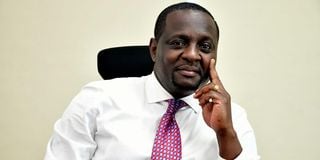
Churchill Winstones, CEO Safaricom Investments Cooperative.
Photo credit: Francis Nderitu | Nation Media Group
What’s a special treat you do just for you?
I ensure a good resting holiday and, while at it, enjoy playing and loosening myself. Dancing is a must.
Have any of your children picked up the musical gene?
Yes, the kind of music we listen to is not like Madilu and Les Wanyika. Now we have Ferré Gola, Fally Ipupa, and Koffi Olomide. My child looks at me, and they want to know more, I understand and speak Lingala, so I’ll help them translate what the music is saying.
What does money mean to you now?
The foundation I grew up on is that too much love for money is poisonous. Whether I become a billionaire or not, I have been taught that all these things are vanity. Make good use of your time and money, and give back to society. I ask God that I never become boastful, disrespectful, or unreachable. When God elevates you, He expects you to elevate others.
What’s the most absurd thing you’ve bought?
I bought my child one of these cars for around Sh50,000, and they outgrew them.
What’s an unusual habit that you have?
[long pause] Waking up at 3am to take a cold bath, after praying. Whether it is raining, cold or whatnot, I pray till 3.30 am, then hit the shower. But I am in bed at 9 pm.
You mention prayer a lot. Why is God so important to you?
It is the foundation that was built in us, and it is also what God has done for me, from being a shoeshiner to a hawker to being a cleaner in the corporate world and now being a CEO is no mean fete. I believe that is odd.
What’s one aspect of faith you struggle with?
I look at what is happening in the world and all these false prophets because the challenge with lies is you look for another lie to support your previous lies. How do you give people false hope?
What’s one thing you wish people understood about you more?
I am very approachable, and I have an open-door policy at home and work.
What are you finally coming to terms with?
That life is short. Do your thing and do your best when you have that time.
If you had six months to live, what would you do that you have been postponing?
The Bible teaches us that confession is possession, so I know I have 40 more years. I like being positive because life has taught me that the tongue is a small element, but it can make powerful things happen.
What matters more to you now?
The success of this organisation, my family and personally.
How does that success look like?
At SIC [Safaricom Investment Cooperative] we have a capital of almost Sh3 billion, and if we took half of that and invested in projects and ideas that would give our shareholders a premium return of double digits, I would consider myself successful. In terms of family, success means being a servant leader. If I achieve those two, then my success will be complete.
What is something you long believed to be true but, with time, realised isn’t?
That if you want to scale the corporate ladder or life, you must have someone to handhold you. You don’t have to know someone who knows someone to be successful. Yes, you need social capital, but some people have risen through sheer hard work, determination, and self-belief.
What’s your insecurity now?
Failure to achieve one’s objectives. Failure is part of life, but you want to turn things around, and that makes you work harder, and see how the turnaround can be achieved—and that could give you sleepless nights.
If success is a moving object, how do you know you are there yet?
There is no state one reaches and feels like they are accomplished. But one of my mentors, Dr Myles Munroe, when he was in Kenya, answered a similar question and said it was finished. He had done everything he wanted to do and may have been speaking to the end of his life. After leaving Kenya, he was involved in a plane crash, and he died with his wife. Keep dreaming and growing. There are still more challenges.
What did you exchange your success for?
With another success. It’s either you make it or you make it. Sacrifice is part of the journey; I went to school after 13 years. Sometimes you want to go outside the country, but you sacrifice and take your family or friends.
What is one book you read that challenged your perspective?
“The Monk Who Sold His Ferrari” by Robin Sharma is about the notion of who will cry when you die. I have also written ten books and I think everyone should read “The Gorilla Thinking” by yours truly. If I want to be successful, what do I need to do?
What’s your go-to weekend meal?
Nyama choma. I don’t drink. With rhumba in the background.
What is a weekend hack, you know, that can make my weekends better?
You can travel to see the wildebeest migration. That will change your perspective in life when you see crocodiles snapping the unfortunate zebras and wildebeests. Life is unfortunate for the weak and timid—what was the wildebeest thinking when they were caught? And the ones who escaped?
What are you apologising to yourself for?
Not doing things faster. If the hands of time were to be taken back, I would do things much faster. And I apologise for that, just like Oprah did. Maybe I would be further in my success ladder if I had done things faster.
Have you forgiven yourself?
Yes, these are key learnings, if you fall, you dust yourself off and stand.
What are you thanking yourself for?
Giving back to society. I know Kennedy Odede, and Raphael Obonyo, who give back to society and whom we work with closely.
What’s making you happy now?
When I bless someone else and become a servant leader. When I give my colleagues a reason to come to work because they stay motivated and are well-remunerated and incentivised, that makes them highly motivated to work.
What does that hawker tell the CEO now?
[long pause] Connections, networks and social capital are key in this journey.
Who do you know that I should know?
Joshua Oigara, Martin Oduor, George Odhiambo, Kariuki Ngari, and Robert Kibaara, are top CEOs in the banking sector. You should also know the NSE’s former CEO, George Odundo. These are people who helped me walk this journey. And Elly Odong, who is my mentor. You need to know them.
Why are you called Churchill?
It’s a weird thing. My parents were naming us after people who made history in the world. My father is Boaz Wilson. We have Carey Francis in our home, Queen Elizabeth, Kennedy Evans…all these are history and changemakers. That’s the trend I have adopted with my children. It puts pressure on you. You don’t want to be a Winstones Churchill and fail.
Have you done the same with your children?
Yes! One of them is named after Dr Myles Munroe haha! I listen to him a lot, he is my mentor.
